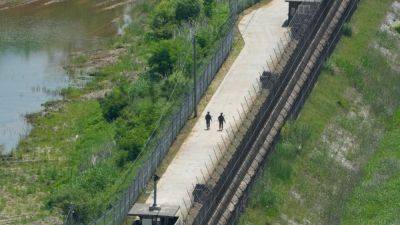Why turning cities into ‘sponges’ could help fight flooding
Editor’s Note: Design for Impact is a series spotlighting architectural solutions for communities displaced by the climate crisis, natural disasters and other humanitarian emergencies.
CNN —Most architects look to control nature; Kongjian Yu wants it to take over.
Intense storms are on the rise and cities across the world are finding it difficult to cope with deluges of floodwater. But instead of using high-tech, concrete-based engineering solutions to defend against the vagaries of the climate crisis, the Chinese landscape architect and urban planner lets nature do the work.
For over a decade, Yu and his firm Turenscape have designed nature-based “sponge cities” intended to soak up and retain stormwater before releasing it back into the environment. Varied in form and scale, the projects create new parks, restore wetlands and install rain gardens and permeable pavements, among much else.
The problem with concrete- or pipe-based solutions that funnel water away from flooded areas is that they are expensive, lack flexibility and require constant maintenance, Yu said. They may also, counterintuitively, make places more “sensitive or vulnerable” to flooding, he argued, comparing cities that rely on conventional flood mitigation to a person whose veins and arteries have hardened. Just as reduced blood flow causes heart attacks, blockages and overflows in urban drainage systems can have devastating knock-on effects.
“There’s a misconception that if we can build a flood wall higher and higher, or if we build the dams higher and stronger, (then) we can protect a city from flooding,” Yu told CNN in a video call. “(We think) we can control the water… that is a mistake.”
The Nanchang Fish Tail Park, in China's Jiangxi






